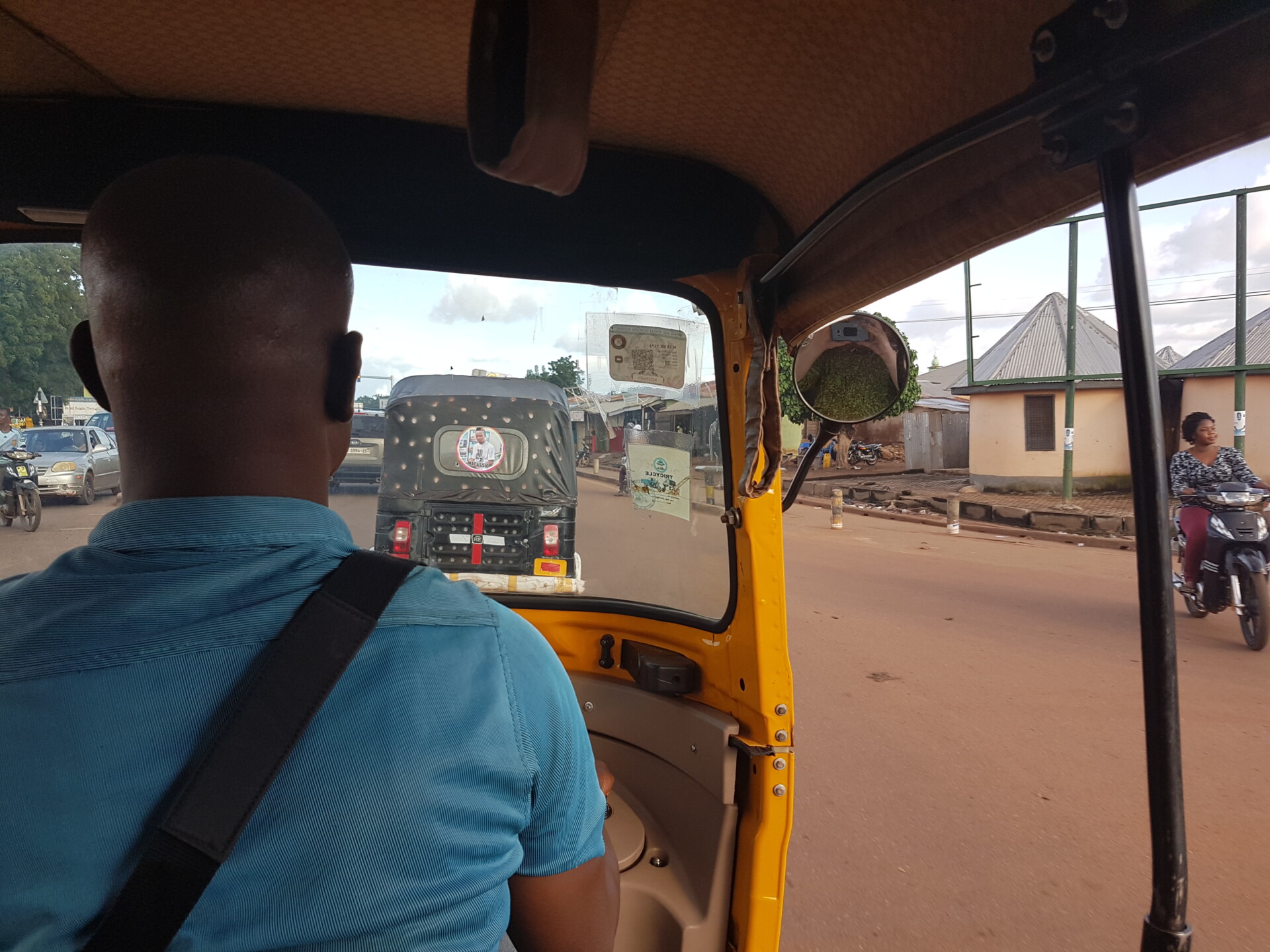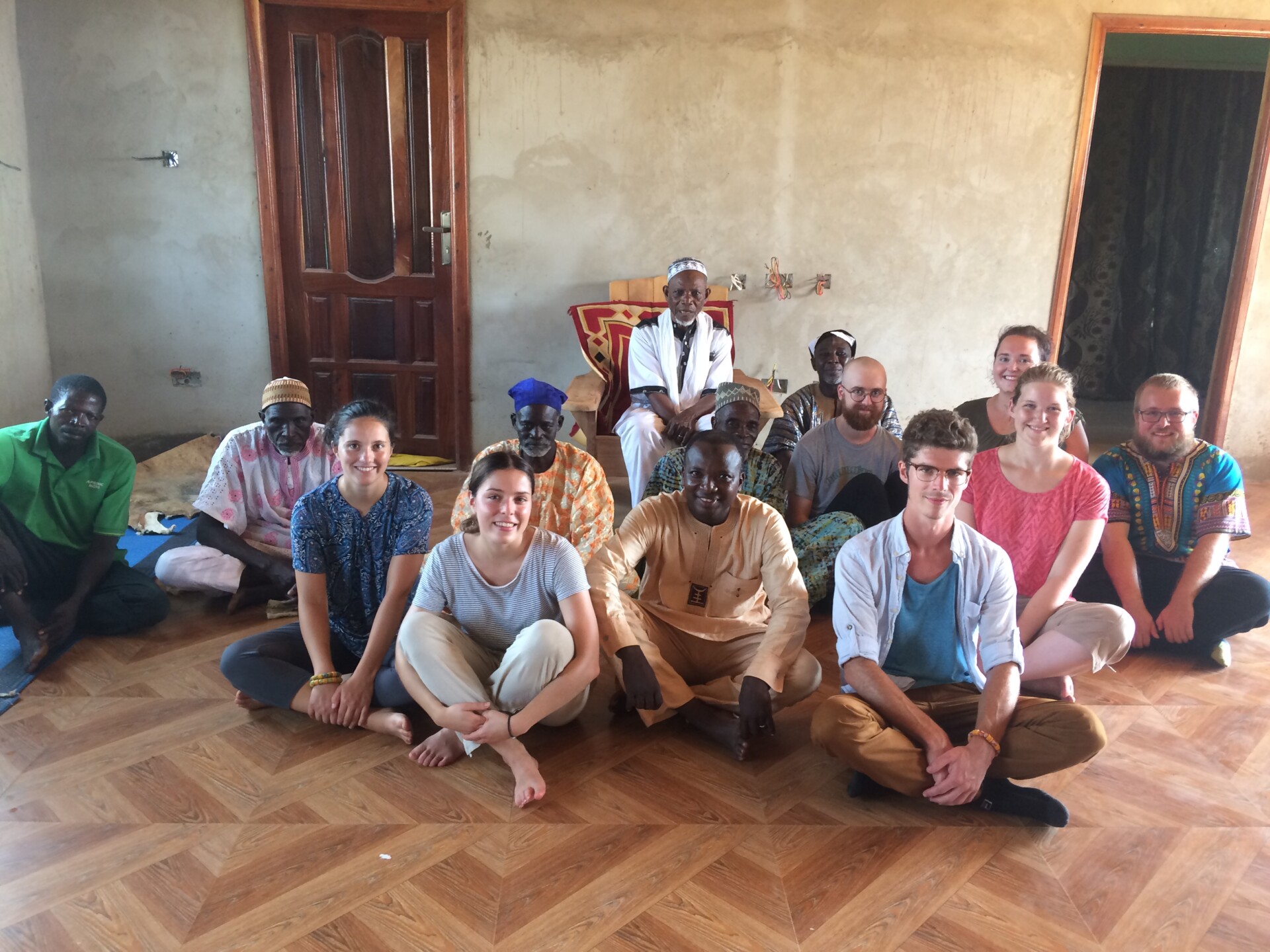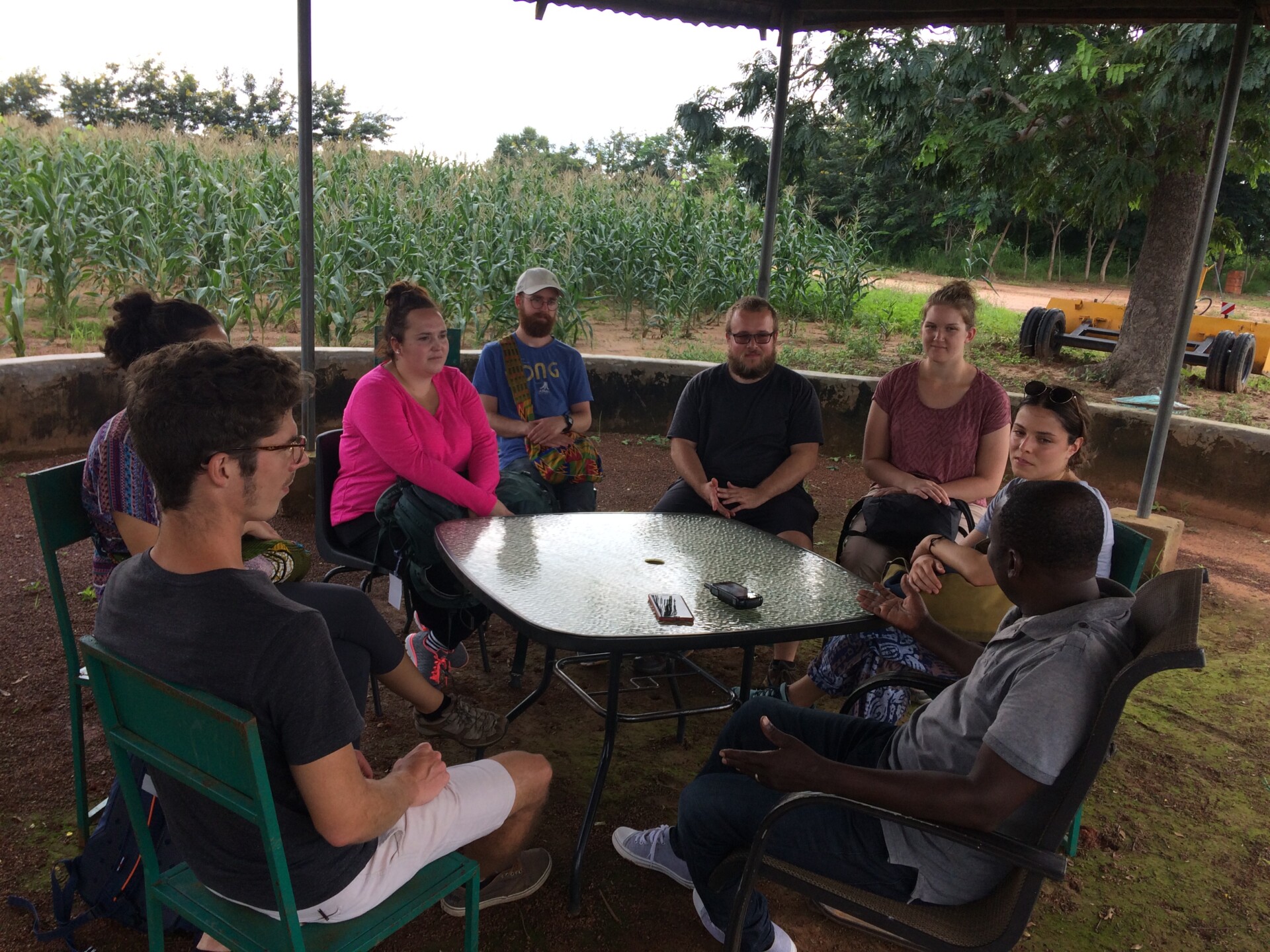
GCIUS - Mind on Another Planet

After 36 hours of traveling, we are finally in Ghana. Even with every possible trainings, it would still be impossible to be prepared for an environment that is so different, dynamic and fluid. However, the heartwarming welcome we got from our WUSC partner was way more than expected. Thank you to everyone who welcomed us in Accra. It was pleasant and it felt familiar somehow. This is unanimous : a long observation and assimilation time will be essential for our integration in this world that seems to be parallel to the one we come from. Almost everything must be learned again from scratch.
Since our arrival in Ghana on September 4th, many things have happened. At the airport, we were welcomed by Yenutien, which is responsible for every WUSC volunteers in Ghana. She makes sure everything is fine. Then, we slept one night in Accra. The following morning, we filled out documents necessary for our visa extension and we got our non-citizen card, which is nice. During the afternoon, we arrived in Tamale by air where we are going to spend much of our time until December 14th, our last day in Ghana.

As of this publication date, we have been living in Tamale for almost two weeks. The atmosphere is very distinct, religion is very present and tradition is put forward. In this northern city of Ghana, the local language is Dagbani, spoken by about 500,000 people. The similarities with French or English are non-existent; its learning therefore requires a non-negligible work that is motivated by the stupor of the locals when we use it. Beyond this daily observation, this language has the potential to become a valuable tool for us because it shows an interest in learning the local way of living. The highly sophisticated oral culture of the Dagombas surprises us more day after day: we will only be able to learn the basics.
At the construction level, events are taking place. The Department of Rural Housing, a government agency, will act as the general contractor for the project and they will be able to provide us with all the skilled labor we will need. They have a great expertise in the manufacture of hydraformed blocks, the main constituent of the building’s walls, and they will assist us throughout the process. The GCIUS team and Sintaro, the owner of Tibzaa Farms, are working together on the development of an action plan that will enable us to achieve our respective goals. On Friday, September 14th, we had the chance to visit two chiefs from the region to share our intentions. In this part of the world, it is very important to respect this traditional hierarchy which is at the heart of the Dagomba culture. We have all their support and they can not wait to measure the impact the project will have on their community. The excitement is felt by all members of the team.
Construction is starting Monday morning. Let’s get to work!
– Jordan Laroche

